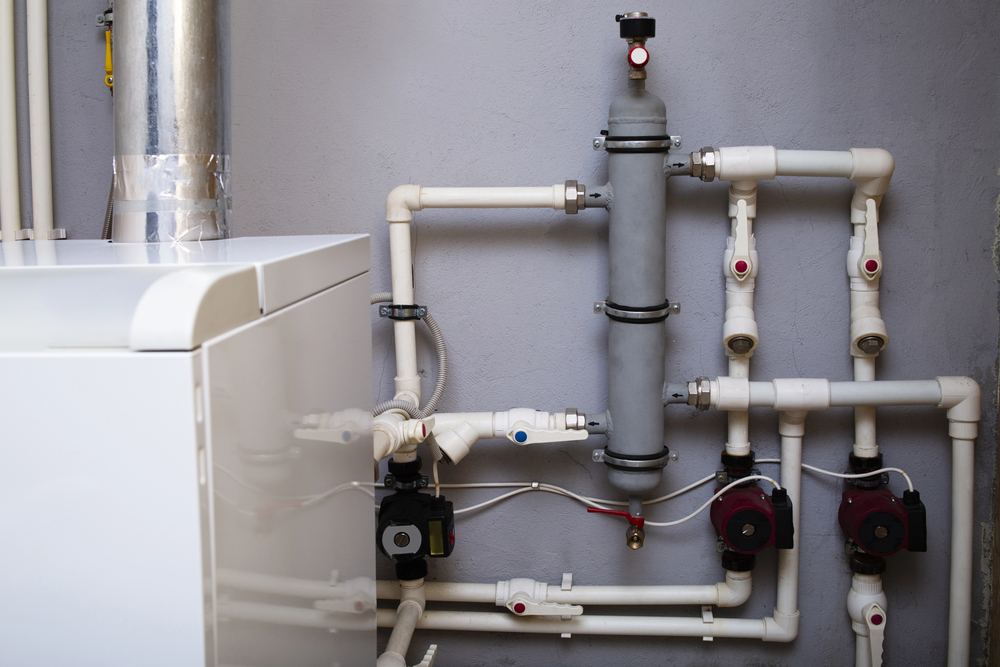No Hot Water? Here’s What a Plumber Will Check First
No hot water at home? Find out what a plumber will check first when your system stops working. Get expert help fast through ServiceSeeking.

There’s nothing quite like hopping into the shower only to be greeted by freezing water. If your hot water suddenly cuts out, it’s natural to worry — but before you panic, it helps to understand what might be going on.
Whether your system is gas, electric, solar, or a hybrid, the best course of action is to call a plumber. Here's what they'll typically check first to get your hot water flowing again.
1. What Type of Hot Water System Do You Have?
Before getting into the nitty-gritty, the plumber will identify what kind of system you’re using:
- Gas (instantaneous or storage)
- Electric (storage or continuous flow)
- Solar (with gas or electric booster)
- Heat pump systems
Each type has its own quirks, and understanding the setup helps narrow down possible faults straight away.
2. Is There Power or Gas Supply?
For electric systems, the plumber will check the circuit breaker or fuse at the switchboard. A tripped breaker could cut power to your water heater.
For gas systems, they’ll inspect:
- Whether the gas valve is open
- If your LPG tank is empty
- Whether there’s a gas leak or blockage
- If the electronic ignition system is working (or if batteries need replacing on older units)
No power or gas means no hot water, no matter how new the unit is.
3. Instantaneous Gas System Checks
If you’ve got a continuous flow (instant) gas unit, your plumber will:
- Turn on a hot tap to see if the system fires up
- Listen for the ignition clicking
- Inspect the flame sensor, strainers, and gas ball valve
- Ensure there’s enough water pressure to trigger heating
Sometimes, these systems won’t activate if the water pressure is too low or if the unit hasn’t been used in a while, allowing air to build up in the line.
 (Image source: Pexels)
(Image source: Pexels)
4. Storage Tank Issues
For storage hot water systems, your plumber might check:
- Whether the heating element or thermostat is faulty
- If the relief valve is leaking (causing hot water loss)
- Signs of a rusted or leaking tank
- Whether the tank is located outdoors, which can affect heat retention in winter
If you’re running out of hot water too quickly, you might have a worn-out tank or a faulty thermostat that’s not heating the water properly.
5. Solar Hot Water Systems
These often include rooftop solar collectors and a gas or electric booster. Your plumber will check:
- If the booster is turned on, especially in cold weather
- Whether the circulator pump is working
- If the system is plugged in and receiving power
- Whether the solar controller is correctly set
If the booster isn't functioning or the solar loop has been bypassed or disconnected, you’ll lose reliable hot water, especially on cloudy days.
6. Tempering Valve Problems
Tempering valves are safety features that mix cold water with hot before it flows to your taps. If faulty, they can make hot water feel lukewarm.
Plumbers will inspect:
- If the valve needs adjusting
- Whether it’s clogged with sediment or calcium
- If it’s worn out (most last about 8–10 years)
They’ll often clean or replace the valve to restore proper temperatures.
7. Water Pressure and Flow Rate
Low water pressure can prevent certain systems, especially gas continuous flow, from activating. A plumber will:
- Check your mains pressure
- Clean out inline strainers or filters
- Inspect tap flow rates to ensure enough water is moving through the system
Too little water, and the heater doesn’t kick in at all.
8. Remote Control Units
Some homes have a remote panel that lets you control water temperature. These are often hidden in pantries or laundry rooms.
If the settings are incorrect or the unit is unplugged, it can affect heating. Your plumber will track it down, check for faults, and make sure it’s properly connected.

9. Age and Condition of the Unit
If the system is over 10 years old, the plumber will assess whether repairs are worth it — or if it’s time for a full replacement. Older systems are more prone to:
- Sediment buildup
- Inefficient heating
- Component failure (especially in budget brands)
It might cost less in the long run to install a new system with a proper warranty.
10. Leak Detection
Leaks can be subtle but cause a lot of problems. A faulty valve or pipe might be draining your hot water without you noticing. Plumbers will check:
- Around the tank or system base
- Connected pipes and joints
- Valves and relief outlets
- Drain lines and temperature pressure valves
Leaks reduce hot water supply and drive up energy bills — definitely something you want fixed quickly.
Still No Hot Water? Time to Call a Plumber
If you’ve got no hot water and can’t pinpoint the problem, your best move is to hire a licensed plumber. They’ll know exactly what to check, and they’ll have the tools and parts needed to sort it out on the spot.
Need help fast? Post your job on ServiceSeeking.com.au and connect with qualified plumbers in your area. Whether it’s a faulty thermostat, gas ignition issue, or a valve problem, you’ll find someone who can diagnose and fix it efficiently — so you can enjoy your next hot shower in peace.
